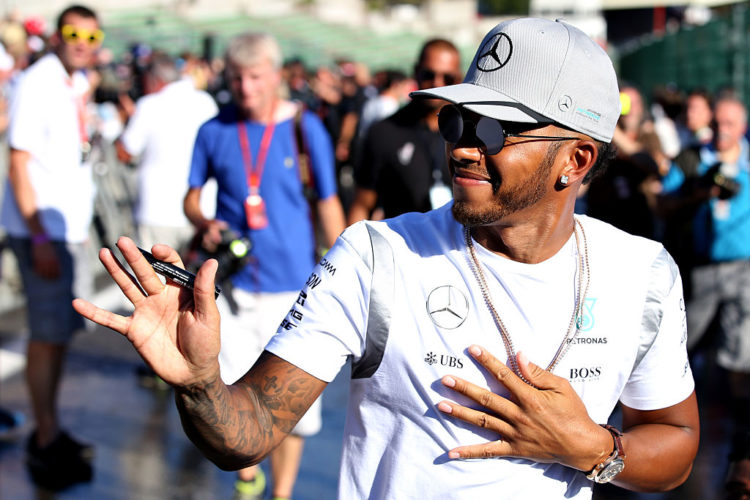Formula One returns this weekend with the first race taking place in Belgium at the famous Spa-Francorchamps circuit. Lewis Hamilton and the other drivers will compete for a win at the 12th race of the 21-race season that sees drivers compete in challenging circuits around the world from Australia to Canada.
A Formula 1 race weekend is a prestigious event, from the technically precise and expensive racing cars, to the sprawling number of celebrities hanging out with their equally famous driver friends.
It’s the place to see and be seen as the cameras are always on. For this reason, countries, both developed and developing vie to host a F1 race weekend as it is the perfect platform to showcase their countries to a global audience.
Meanwhile, the powers that be, F1’s chief executive Bernie Ecclestone have sought to bring the magic (and the monetary gains for themselves) of F1 to newer territories. Earlier in the year, the race was held for the first time on the streets of Baku, Azerbaijan, while Mexico will see its second race in as many years, after being off the race calendar for some time.

The F1 weekend not only presents an avenue for countries to make a splash; it is also needed as a motivator for those wanting to participate in the sport. In addition, the race serves to promote the ingenious work being done by the engineers that work tirelessly in the background to ensure that the cars are ready for competition. Therefore from a technical standpoint, the races serve as a melting pot of technology, innovation and motorsport strategy.
Africa has not held a Formula One race since the race held in 1992 at South Africa’s Kyalami circuit. Even rarer has been the number of Africans to win a Formula 1 championship, with Jody Scheckter being the only recorded African to have done so. The obvious question therefore is why has there not been a race on the African continent in so long, given the global appeal of the sport, which is also popular in Africa?
The problem is quite simply money. It costs a lot to stage a Formula One race, and organisers will only do so if they can make a profit from it. The effect of Africa not hosting a race is that the sport appears to be out of the reach of Africans. As we have seen from the recent triumphs of Africans at the recently completed Rio 2016 Olympics, the problem is not that Africans are not good enough in certain sports, the issue is the lack of opportunities for them to participate.
A simple example was the case of Simone Manuel who became the first African American to win the women’s 100m freestyle in a sport that has long being considered ‘not the black man’s forte’.
So how can Africa begin to champion those interested in a sport in which Lewis Hamilton has shown that black people if given the opportunity, would undoubtedly be competitive, and fight for championships.
Part of the answer lies in the fact that strong motor racing foundations need to be put in place. Most Formula One drivers are products of karting, and they have raced in these events from a young age. Africa therefore needs to create a pan-African karting series, which could see races held in the four corners of the continent. The continental championship would pit the best drivers from the different participating countries against one another in circuits around Africa.
Yes the drivers still need sponsorship. But karting is a lot less expensive than F1. The idea is that through such competitions, talented youngsters can be identified, who can then go on to Formula One feeder competitions such as GP3 and GP2. The pan-African nature of the event would also attract corporate sponsorship that the participating teams will undoubtedly need to deliver competitive cars. There have been many efforts to get Africans involved in motor racing. Such events would enable the continent unearth more talent such as Ovie Iroro; a Nigerian who competed at the British Formula Ford championship.
In the late 90s a Nigerian businessman Prince Malik Ado Ibrahim bought a stake in the then Arrows Formula 1 motor racing team. But the deal soon turned sour and the Arrows F1 team failed. Similarly, in 2012 the Nigeria Racing Eagle (NRE) project was initiated with the aim of competing in the GT3 series. This too does not appear to have fostered the development of talent in motor sports in Africa.
Quite simply, if you want to build a house that lasts, you need to start from the bottom. Africa needs a competitive karting series, where youngsters can enjoy racing. Once this is done right, the rest will follow.
